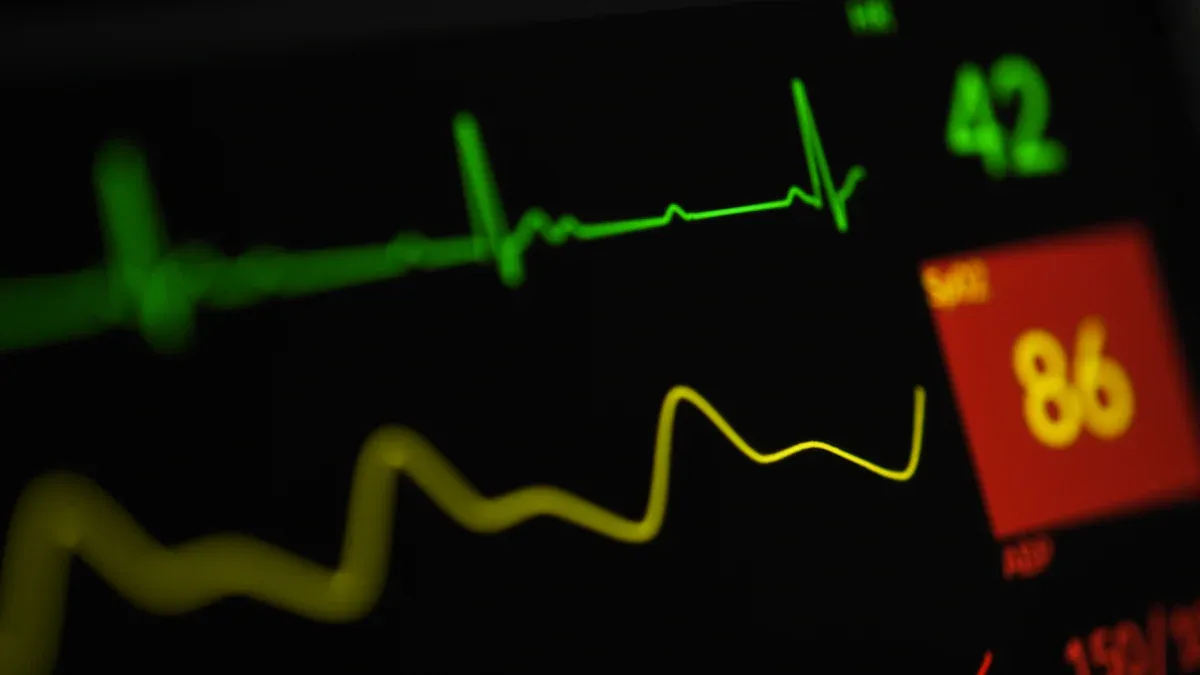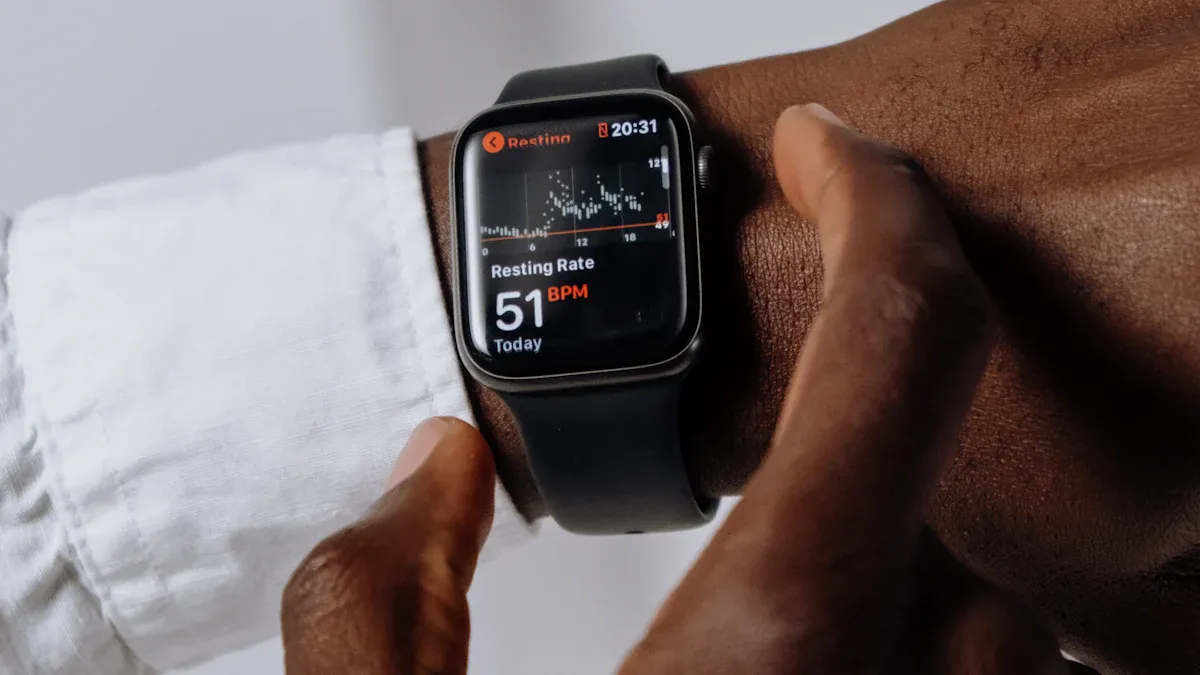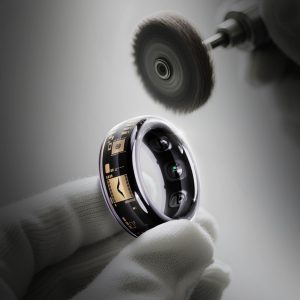
You might wonder what counts as a normal resting heart rate for women. Most healthy women have a normal resting heart rate between 60 and 100 beats per minute. The average falls between 78 and 82 beats per minute. Women often have a slightly higher normal heart rate than men. Many things, like age and fitness, can change what is normal for you. Paying attention to your resting heart rate helps you spot changes in your health. If you notice your heart rate resting woman is outside the normal range, consider speaking with a healthcare provider.
Key Takeaways
-
A normal resting heart rate for most women ranges from 60 to 100 beats per minute, with an average between 78 and 82.
-
Your resting heart rate changes with age, fitness, and hormones, so know your normal range and watch for big changes.
-
Healthy habits like regular exercise, good sleep, and stress control help keep your heart strong and lower your resting heart rate.
-
Measure your resting heart rate each morning before getting up, using your wrist or neck pulse for the most accurate results.
-
If your resting heart rate stays too high or too low, or you feel unwell, write down your numbers and talk to your doctor promptly.
Resting Heart Rate

Why It Matters
Your resting heart rate shows how many times your heart beats each minute when you are calm and not moving. You usually measure it when you wake up in the morning before you get out of bed. This number gives you a window into your heart health. A healthy heart pumps blood with less effort. If your resting heart rate is in the normal range, your heart works well.
Doctors use resting heart rate to check your fitness level and spot early signs of health problems. If your heart rate resting woman is too high or too low, it may signal stress, illness, or other issues. You can use this number to track changes in your health over time. Many women find that a lower resting heart rate means better fitness. When you exercise often, your heart gets stronger and beats fewer times per minute at rest.
Tip: Check your resting heart rate at the same time each day for the most accurate results.
Heart Rate Resting Woman: What’s Normal?
You may wonder what counts as a normal resting heart rate. For most women, the normal range falls between 60 and 100 beats per minute. The average resting heart rates for women are a bit higher than for men. Most women see numbers between 78 and 82 beats per minute.
Here is a simple table to help you see what is normal:
|
Age Group |
Normal Resting Heart Rate (bpm) |
|---|---|
|
Teenagers |
60-100 |
|
Adults (18-65) |
60-100 |
|
Seniors (65+) |
60-100 |
You may notice that the heart rate resting woman is not the same for everyone. Age, fitness, and even the time of day can change your number. Some women have a normal heart rate at the lower end of the range, while others are closer to the top. If your heart rate resting woman is always outside the normal range, you should talk to your doctor.
The heart rate resting woman is a key sign of your overall health. You should know your normal resting heart rate and watch for changes. If you see a big jump or drop, it could mean something has changed in your body. Always use your heart rate resting woman as a guide to help you stay healthy.
Age and Fitness
By Age Group
Your resting heart rate changes as you get older. Children and teenagers often have higher heart rates than adults. As you move into adulthood, your heart rate usually settles into a steady range. For most adult women, a normal resting heart rate falls between 60 and 100 beats per minute. Seniors may notice their heart rate stays in the same normal range, but some see small increases with age. This happens because the heart muscle can become less efficient over time.
You should know that your body changes with age. Hormones, lifestyle, and even medications can affect your heart rate. If you track your heart rate over the years, you may spot trends. A sudden change from your normal pattern could signal a health issue. Always compare your numbers to what is normal for your age group.
Note: Keeping a record of your resting heart rate helps you notice changes early.
Fitness and Athletes
Your fitness level has a big impact on your resting heart rate. If you exercise regularly, your heart becomes stronger. A strong heart pumps more blood with each beat, so it does not need to beat as often. Many athletes have a resting heart rate much lower than the normal range for most people. You might see numbers between 30 and 40 beats per minute in athletes. This is because their hearts work more efficiently.
For most women who do not train like athletes, a normal resting heart rate stays between 60 and 100 beats per minute. If you start a new exercise routine, you may notice your resting heart rate drops over time. This shows your heart is getting stronger. Remember, a lower heart rate in athletes is normal and healthy for them.
Influencing Factors
Modifiable Factors
You can change many things that affect your resting heart rate. These are called modifiable factors. When you make healthy choices, you help your heart work better. Here are some important factors you can control:
-
Diet: What you eat changes your resting heart rate. Meals high in polyunsaturated fats, like those in nuts, seeds, and fish, help your blood vessels and may lower your heart rate. Foods with a lot of saturated fat, such as fried foods or fatty meats, can raise your heart rate and blood pressure.
-
Stress: Stress makes your heart beat faster. When you feel stressed, your body releases hormones that increase your resting heart rate. Over time, too much stress can make your heart work harder than it should.
-
Sleep: Good sleep helps your heart rest. Poor sleep or not enough sleep can make your heart beat faster during the day.
-
Physical activity: Regular exercise makes your heart stronger. A strong heart pumps more blood with each beat, so your resting heart rate goes down.
-
Meal timing: Your heart rate is often higher after eating. Try to measure your resting heart rate before breakfast for the most accurate number.
Tip: Small changes in your daily habits can help you reach a healthy heart rate.
Non-Modifiable Factors
Some things that affect your resting heart rate are out of your control. These are called non-modifiable factors. You cannot change them, but knowing about them helps you understand your body.
-
Age: As you get older, your resting heart rate may change. Older adults sometimes see a small increase.
-
Hormones: Hormonal changes, like those during your menstrual cycle or menopause, can affect your heart rate. Research shows that changes in hormones such as estradiol and progesterone can change how your heart responds to stress. Women often notice their resting heart rate shifts at different times in their cycle or after menopause.
-
Genetics: Your family history plays a role. Some people have a naturally higher or lower resting heart rate because of their genes.
You should pay attention to both modifiable and non-modifiable factors. This helps you understand why your resting heart rate changes and what you can do to keep it in a healthy range.
Measuring at Home

Step-by-Step Guide
You can check your resting heart rate at home with just a watch or a timer. Follow these steps to get an accurate number:
-
Sit or lie down quietly. Rest for at least five minutes before you start.
-
Find your pulse. Place your index and middle fingers on the inside of your wrist, just below your thumb. You can also use the side of your neck, next to your windpipe.
-
Count the beats. Use a timer or watch. Count how many times your heart beats in 60 seconds. If you want a quicker check, count for 30 seconds and double the number.
-
Write down your result. Record the number and the time of day. Try to measure your heart rate at the same time each morning for the best results.
Tip: Avoid caffeine, exercise, or stress before measuring. These can raise your heart rate.
Tracking Tools
You can use smart devices to track your resting heart rate more easily. Many people choose wearable technology for continuous and accurate monitoring. The VERTU Aura Ring is one example. This smart ring fits comfortably on your finger and tracks your heart rate all day and night. The Aura Ring uses advanced sensors to measure not only your heart rate but also your sleep, blood oxygen, and other health signals. You can check your data on your phone and see trends over time. The ring feels light and smooth, so you may forget you are wearing it. With water resistance and a long battery life, you can wear it almost anywhere.
Note: Smart rings like the Aura Ring help you spot changes in your heart rate quickly and keep your health information organized.
When to Seek Help
High or Low Heart Rate
You should know when your resting heart rate falls outside the normal range. A high resting heart rate means your heart beats faster than usual when you are at rest. This can happen if you feel stressed, have a fever, or drink too much caffeine. Sometimes, a high resting heart rate points to a health problem like an infection or heart condition. You should watch for numbers above 100 beats per minute.
A low resting heart rate means your heart beats fewer times each minute. Many athletes have a low resting heart rate because their hearts work very well. For most people, a low resting heart rate below 60 beats per minute may cause concern if you feel dizzy or weak. You should not ignore these signs.
If you notice your heart rate is always too high or too low, write down your numbers and talk to your doctor.
Warning Signs
You should pay attention to your body. Some symptoms mean you need help right away. Look for these warning signs:
-
Chest pain or pressure
-
Shortness of breath
-
Fainting or feeling like you might faint
-
Dizziness or confusion
-
Skipped or extra heartbeats
If you have a high resting heart rate with chest pain or trouble breathing, call for help. If you have a low resting heart rate and feel faint or very tired, seek medical care. Your doctor can check for problems and help you stay safe.
Tip: Trust your instincts. If something feels wrong, do not wait to get help.
You now know that a healthy heart rate for most women falls between 60 and 80 beats per minute. Your age, fitness, and even hormones can change this number. Regular exercise, good sleep, and stress control help you keep your heart strong. Smart tools let you track your heart rate and spot changes early. If you notice your heart rate is too high, too low, or you feel unwell, talk to your doctor.
FAQ
What is the best time to measure my resting heart rate?
You get the most accurate reading in the morning, right after you wake up. Make sure you rest quietly for a few minutes before checking your pulse.
Can stress affect my resting heart rate?
Yes, stress can raise your resting heart rate. When you feel anxious or worried, your body releases hormones that make your heart beat faster. Try deep breathing or relaxation to help lower it.
Does caffeine change my resting heart rate?
Caffeine can make your heart beat faster. If you drink coffee, tea, or energy drinks, your resting heart rate may go up for a short time. Measure your heart rate before having caffeine for the best results.
Should I worry if my resting heart rate changes day to day?
Small changes are normal. Your heart rate can shift because of sleep, stress, or activity. If you see a big change or feel unwell, talk to your doctor.








